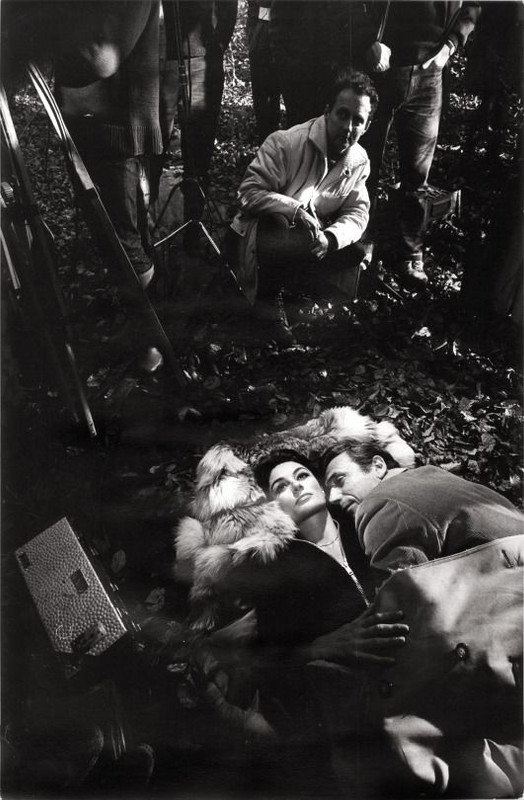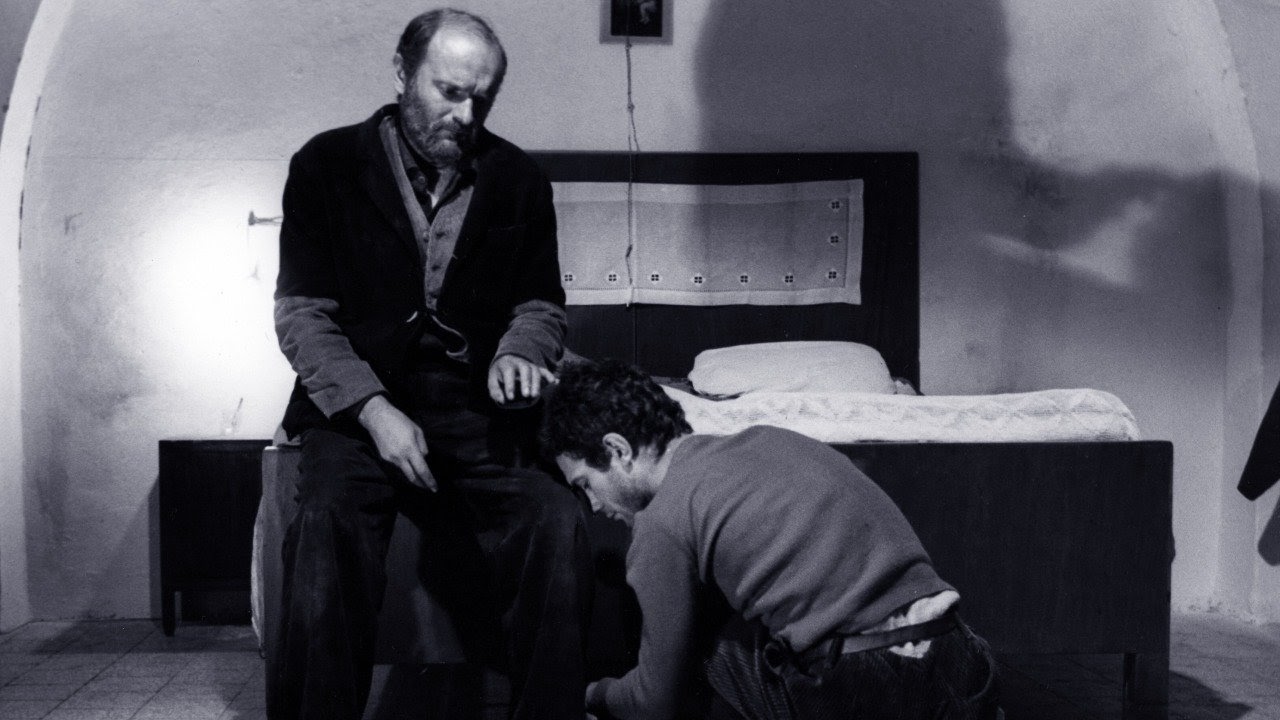Un soir, un train [One Night, a Train] (André Delvaux, 1968)
Mar
18
André Delvaux

Anouk Aimée and Yves Montand in character on a leaf-strewn floor, his head resting on her chest, with director André Delvaux and others surrounding them. DP: Ghislain Cloquet.
A favourite film, director, or producer for Luc Besson's birthday (1959).
Having only seen three of Delvaux's films, I feel I can safely say his work is hypnotic, but not in the common sense. We see a world through both Delvaux's and his protagonists eyes, and experience their duality as one. This displacement is a recurring theme in Delvaux's work, the work of a man raised in one world and speaking the language of another, both worlds bearing the same name, Belgium.
This slow tear is also the theme is his best known film, De man die zijn haar kort liet knippen [The Man Who Had His Hair Cut Short] (1965), in which a schoolteacher loses himself after a pupil graduates. When we think we are firmly seated in Delvaux's universe, we fall back, like that moment just before sleep sets in. And again, in his tragically under-seen Belle from 1973. Now it's a poet who finds a woman living in a ramshackle hut in Belgium's peatland, her language an unknown. With only one main speaker, the duality forms in the poet's words, in his attempts to give her root.
And so do we, the viewers. We hang on to that root, Delvaux's, only to sink back into our own loss of words.
linguistics
“Don't laugh at Gavino. Hands on your desks! Today is Gavino's turn. Tomorrow will be yours.”Padre padrone [My Father My Master / Father and Master] (Paolo + Vittorio Taviani, 1977)
May
23
freebie: National Sons Day

Father (Omero Antonutti) and son (Saverio Marconi). The son, an adult here, kneels and rests his head on his father's knee. The father, perched on the edge of a bed, looks down on the young man. DP: Mario Masini.
Not a film you can be prepared for, Padre padrone. The author, Gavino Ledda, hands a stick – that stick – to the actor who plays his part. There we are, in Sardinia, beautiful Sardinia. A boy in class, learning. His father barges in: the boy must attend the sheep, or else. From that moment on we become that boy Gavino. Life's cruel on the island, but his father, his master, is worse. But that's how it is, there's sheep to herd. When Gavino enlist in the army, he encounters a new world. The precise world of electronics, other people, other sounds, the Italian #language. When he returns home, he finds his father a small man.
– father
In a 1977 New York Times article the Taviani's are cited as seeing Gavino in the same light as #Truffaut's L'Enfant sauvage (1970) and #Herzog's Kaspar Hauser (Jeder für sich und Gott gegen alle) (1974). However, the Sardinian boy's outsiderness is not caused by estrangement, but an immense loneliness that cannot be put into words. This is why Ledda's newfound language is such an important tool. It's not a stick, or a fist, or a dead snake. It's the foundation of his Home.
Un soir, un train [One Night, a Train] (André Delvaux, 1968)
Mar
20
French Language Day

Mathias (Montand) and Anne (Aimée) walk through a round archway. Both have a different focus and are on opposite sides of the arch as a foreshadowing of their parting. DP: Ghislain Cloquet.
A Walloon language professor and his French set designer fiancée are at an impasse. While his Flemish students vocally protest against more Walloon influence at their uni, the couple – who superficially speak the same #language, #French – struggles to find the right words. They meet, part ways, then find each other again on a train that at morning turns out to be standing still in the middle of nowhere. The man, now without her, disembarks and with two acquaintances who also were on that train tries to find out where he and she are.
André Delvaux's Un soir, un train is a masterpiece about finding the right language in a fractured world.